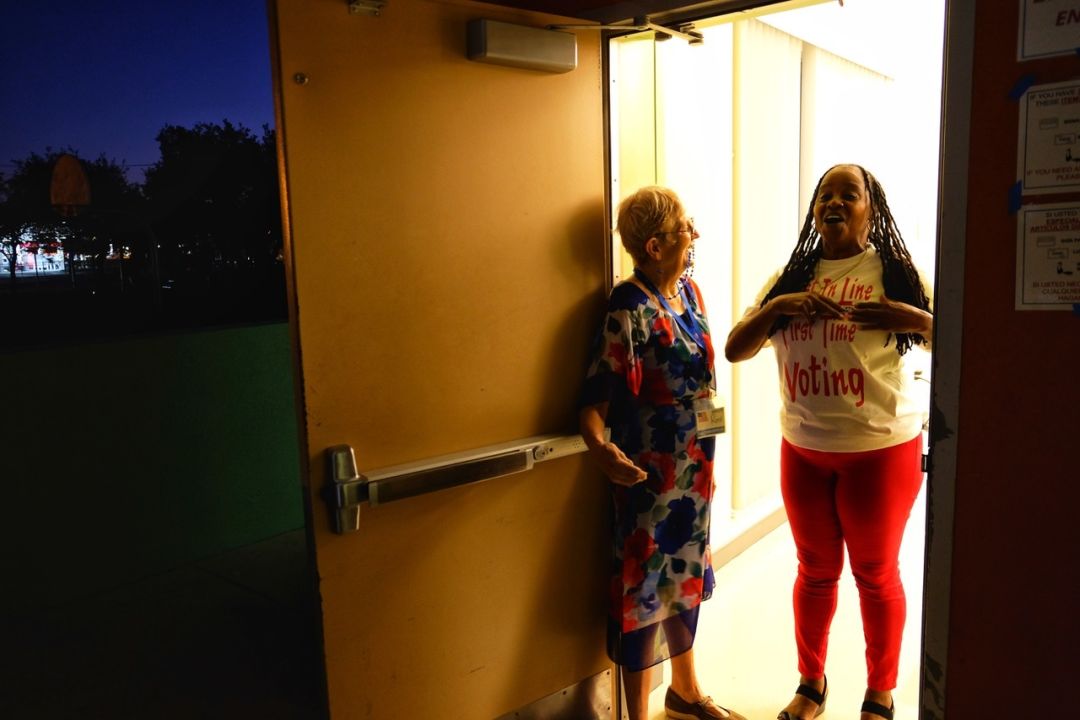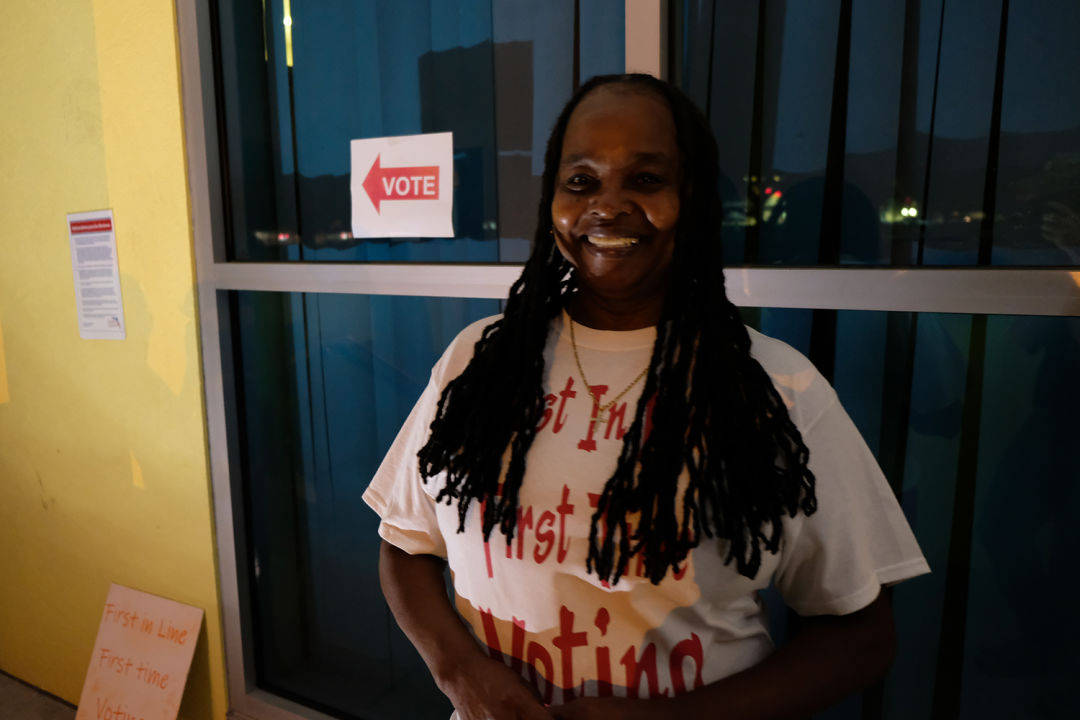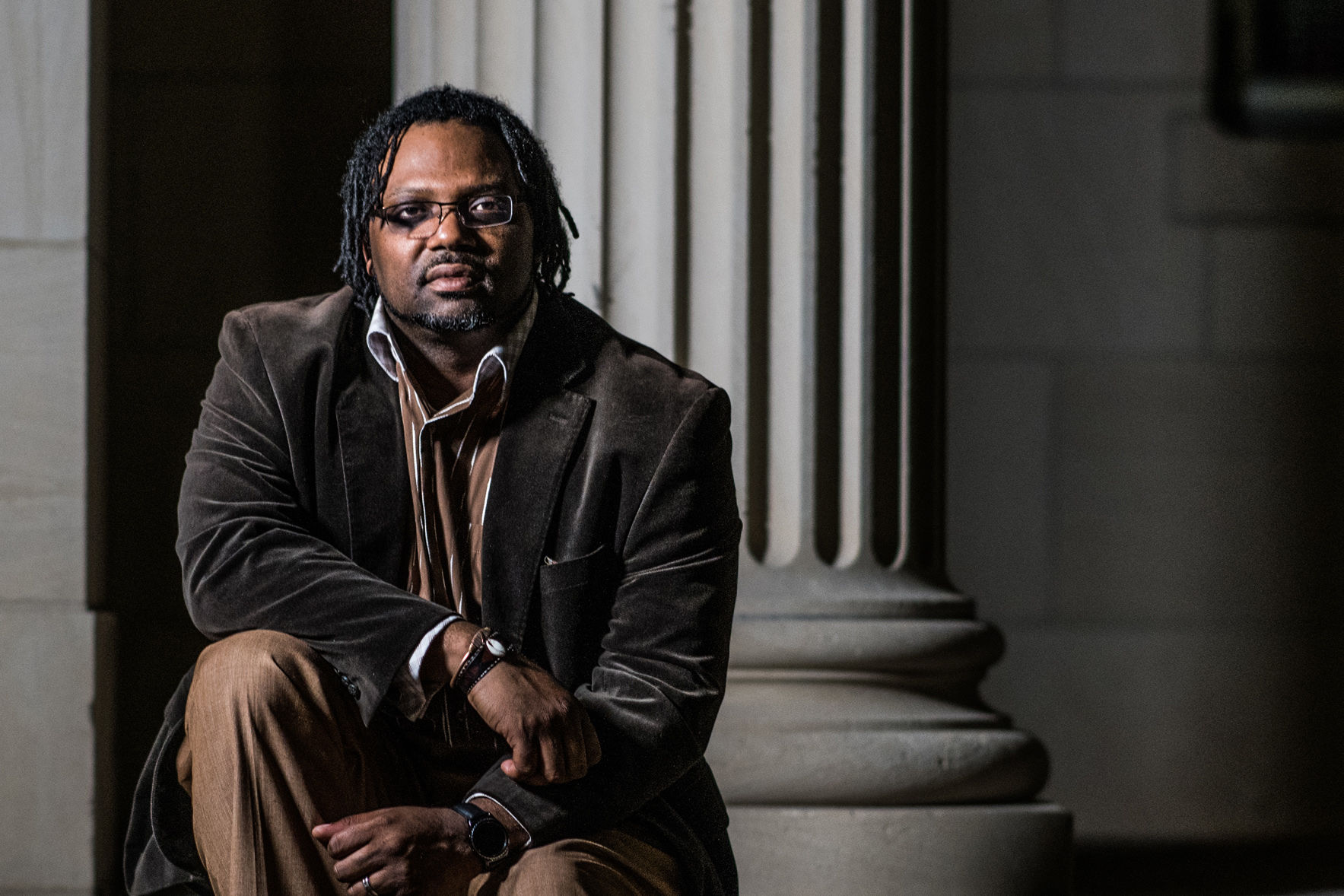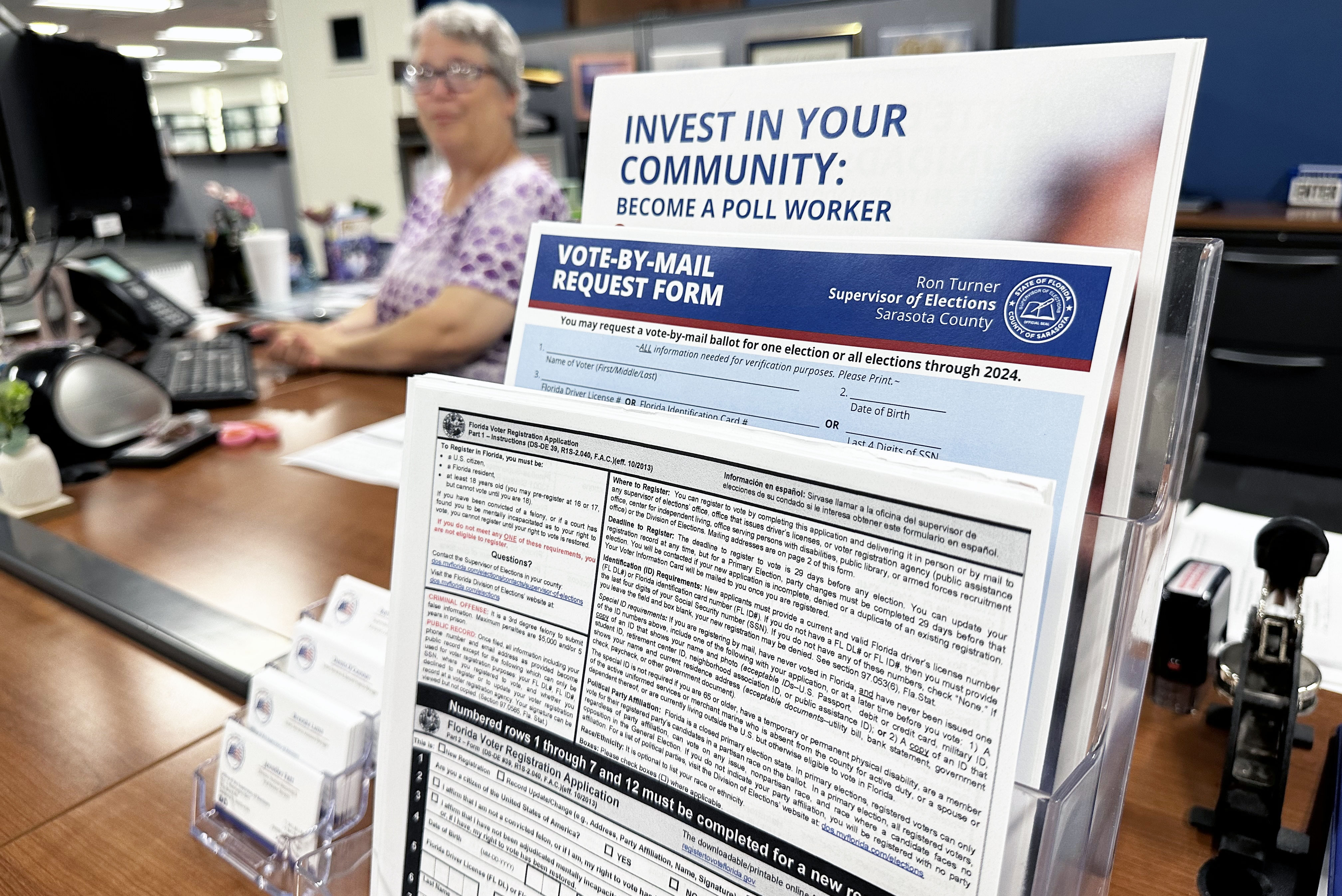After Serving Her Time in Prison, a Sarasota Woman Goes to the Polls

Former felon Betty Riddle after voting at the Robert L. Taylor Community Complex this morning.
Image: Isaac Eger
Betty Riddle arrived at the polling station at the Robert L. Taylor Community Complex at 6:35 this morning to make sure she was first in line. It was a family affair. Her two daughters, two granddaughters and one great-grand daughter were all there to celebrate Riddle voting for the first time in her life. She wore a white shirt with red letters that read "First in Line, First Time Voting" and carried a homemade sign that said the same.
Riddle is 62 years old and one of 17 felons who sued the state of Florida in order to have their voting rights restored. Floridians are familiar with the story. In 2018, 65 percent of the state’s voters approved Amendment 4 giving nonviolent felons the right to vote. Up until then, Florida was one of only four states that prohibited voting by felons who were no longer incarcerated. The passage of this amendment became the single largest expansion of voting rights in the United States since the 26th Amendment lowered the voting age to 18. “When the amendment passed, it was like a gift from heaven,” Riddle remembered thinking. “My voice will finally be heard.”
But the victory was short-lived. The state legislature immediately decided that felons would have to pay all fines and fees related to their convictions and passed a law, blocking approximately 1.5 million Florida felons from voting if they had not paid up. Critics immediately said it was akin to a poll tax. Seventeen felons sued the state of Florida to remove the law, and a U.S. District judge agreed to let this group of plaintiffs vote in today’s primary. Riddle is one of those plaintiffs. A non-jury trial is scheduled for this April to decide whether the law applies to all felons.

Betty Riddle
Image: Isaac Eger
Riddle didn’t always care about her right to vote. She was first sent to prison when she was 17 years old. A former drug addict, she had been convicted of drug trafficking five times. “I was a drug dealer for 22 years,” she said, as she waited at the polling station. “I married into it. Every husband I had was a drug dealer.” It was when she was in court for the fifth time, watching the judge sentencing every defendant to time in prison, including people who were 90 years old and frail, that it hit her.
“I knew at that moment that if I didn’t change, I was going to grow old in prison,” she said. During her last time locked up, she used every opportunity to make sure she’d never go back. Today, she is a paralegal and the communications assistant for the 12th Judicial Circuit Public Defender’s Office in Sarasota. She also became an activist for felons' rights to vote. “[The idea of] voting made me feel a part of instead of apart from,” she says.
The doors swung open this morning and one of the poll workers announced, “Here’s your first voter!” Riddle bounced in and clapped her hands. She walked out smiling. “That was easy!” she said. Everyone waiting in line congratulated her. Riddle thanked everyone. “But I’m still fighting until every felon has the right to vote,” she added. “We’re not done.”



